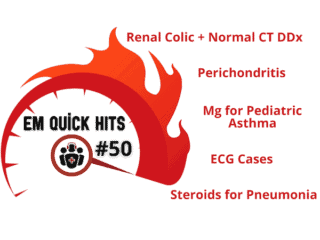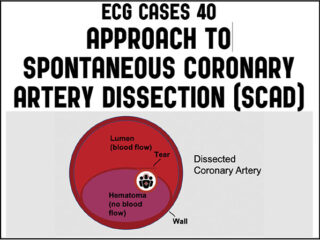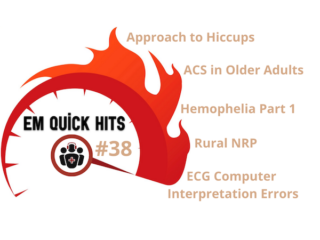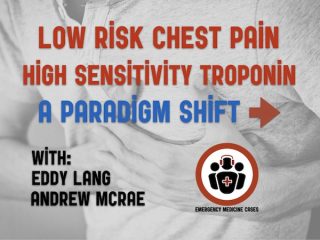EM Quick Hits 50 Normal Unenhanced CT Renal Colic DDx, Perichondritis, Magnesium in Pediatric Asthma, Steroids for Pneumonia, OMI Cath Lab Activation
On this month's EM Quick Hits podcast David Carr on differential diagnosis of normal unenhanced CT renal colic, Leeor Sommer on recognition and management of perichondritis and auricular abscess, Suzanne Schuh on IV magnesium sulphate for pediatric asthma, Jess McLaren on Occlusion MI ECG interpretation requiring cath lab activation and Justin Morgenstern on update on steroids for pneumonia... Please support EM Cases with a donation: https://emergencymedicinecases.com/donation/







